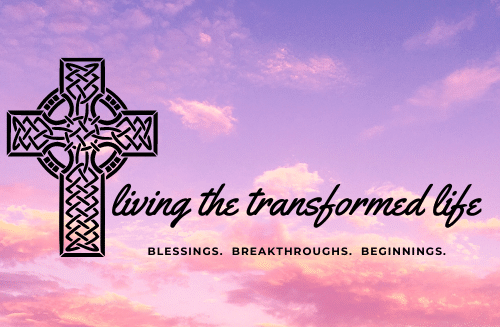
Did you know that May is Mental Health Awareness Month? (It’s also the month I was born, but that’s not the topic of this post, so we’ll let that go.)
According to the latest statistics from the World Health Organization, depression affected 264 million people worldwide in 2020. Most of them would have struggled even without a pandemic.
In other words, depression is a big problem for many people (maybe even you).
Sadly, many people who suffer from depression do not reach out for help. Some are overwhelmed and afraid of the stigma that’s been attached to mental illness.
That stigma needs to be shattered. There are two ways to do that. One way is by sharing our stories ( I’ve done that in this post: http://livingthetransformedlife.com/stamping-out-the-stigma-of-mental-illness).
The second way to remove the stigma is through education. So here are the facts you need to know about depression.
What are the warning signs of depression?
Depression is much more than “having the blues.” There are several specific symptoms to watch for:
- an overwhelming sense of sadness; sometimes crying for no apparent reason;
- changes in appetite and sleep patterns;
- loss of energy; physical fatigue and exhaustion
- irritability or “feeling on edge” and unable to cope;
- decreased sex drive;
- difficulty focusing or concentrating, “brain fog”;
- loss of interest in activities once enjoyed.
Sometimes people who have these symptoms are still able to function and go to work (I was in this category). But other people find it so debilitating they can’t even get out of bed or carry on a coherent conversation. Some may not exhibit all of these symptoms yet still be depressed.
However, if you or a loved one are experiencing any of these difficulties, don’t wait to seek help. It’s important to recognize that this not your fault. This is an illness and needs to be treated just as any physical illness. The first step is to see your primary care physician, who can perform a depression screening.
What causes depression?
It is generally believed that depression is the result of a combination of factors. Not all of these may be present in every person dealing with depression, but here are some root causes:
- brain chemistry imbalances — your brain contains many chemicals, and some people may have too much or too little of them. I know this to be true in my case, because I am totally different now that I am on the appropriate medication. (My wife will attest to the fact that the changes are startling.)
- genetics— if there is a family history of depression, your chances of being affected also are much higher. My father had several mental breakdowns and spent time in psychiatric wards on at least two occasions that I know of, so it is likely that I had some genetic predisposition.
- hormonal changes— for example, postpartum depression. (I know I first began exhibiting symptoms when I reached puberty.)
- seasonal changes— especially in the winter, some people experience seasonal affective disorder, which is a form of depression. Gray cloudy days sometimes affect me negatively.
- stress and trauma– these affect different people in different ways. Stress, which occurs as the result of specific situations in your life, can affect your body both physically and mentally. Traumatic events, such as the death of a loved one, sudden job loss, or abuse can culminate in depression. I know this was certainly true for me.
- spiritual oppression– the medical field will not acknowledge this last factor, but as a Christian this is a very real concern. Satan’s battlefield is in the mind. I went through deliverance session with pastors on several occasions, and I can testify that demonic activity was a causal factor in my depression. There are spiritual roots that may need to be dealt with in prayer.
I hope you can see by this list that none of this is your fault. Being depressed doesn’t mean you are weak or flawed or lacking in faith. It simply means you have an illness that needs to be dealt with.
What can be done about depression?
Thankfully we don’t live hundreds of years ago, when those who were depressed were locked up in asylums or attics. Treatment is available in several forms:
- Medical — as I said, the first step is going through a depression screening with your physician. Once a diagnosis is made, the doctor may prescribe an antidepressant. There are a wide variety of medications currently available, and the results vary from person to person. You may have to be patient as your doctor tries to find one that’s right for you, so don’t despair if you don’t get immediate results. There may be a period of trial-and-error until the correct medication can be determined.
- Therapy and Counseling– just as with medications, there are a wide variety of options. Usually some form of counseling is recommended in addition to a prescription. This can mean psychotherapy with a psychiatrist, psychologist, or a licensed clinical social worker (LCSW). Pastoral counseling and prayer can also be extremely helpful.
- Support Group– if you are dealing with specific root causes, participation in a support group can provide vital encouragement. Of course there are groups devoted to specific issues (for instance, if alcohol abuse is a problem, Alcoholics Anonymous should be on your to-do list). There are also Christian groups such as Celebrate Recovery which I highly recommended. The point is, a support network is beneficial. No one needs to go through this alone. (In fact, isolation is one of the worst things you can do).
- Lifestyle Changes– many physical factors can affect our mental and emotional health. You may need to make some changes in diet and exercise. You may also have to learn some type of stress management, such as breathing exercises.
- Spiritual — Perhaps the greatest changes needed may be in your spiritual life. Do you know Christ as your Savior? Are you involved in a church that ministers to you? Are you surrounding yourself with positive, faith-filled people? You have a Father who loves you dearly, so be sure to connect with Him in prayer. If spiritual oppression is a factor, you may need to consider some form of deliverance ministry. An excellent resource is the “Steps To Freedom” developed by Dr. Neil Anderson, which will help you deal with areas such as generational curses. I went through the “Steps” with two pastors, and experienced great release from some things that I had not even been aware of.
Depression does not have to dominate your life.
It may feel overwhelming to deal with depression. But help is available, and I urge you not to give up.
Ben Bennett has written an outstanding article with five key truths you need to know if depression is part of your life. Here is a brief summary:
- Nothing is “wrong” with you — do not let yourself be identified by your struggle.
- It’s okay to seek professional help and take medication — the fields of psychology and medicine are gifts from God to us.
- Often, mental health issues aren’t random — many times these issues result from painful experiences.
- Understanding triggers can lead to transformation — we often have situations in life that trigger, or bring on, mental health episodes. Learning to deal with these can bring release.
- It gets better and can be overcome — God can renew our minds and rewire our brains.
You can find the complete article here: http://resolutionmovement.org/five-truths-to-know-about-mental-health
Helpful Resources
I’d like to close with a few resources that you may find helpful.
- http://resolutionmovement.org is a Christian website geared toward young people (but don’t let that stop you if, like me, you’re no longer in that group!) They have helpful videos and articles, including a mental health checklist.
- http://verywellmind.com has easy-to-understand articles and videos to help keep you informed on this topic.
- http://nami.org also has excellent articles. They also have a Helpline you can call, 800-950-NAMI, or you can text “NAMI” to 741741.
I hope this post has been both enlightening and encouraging. I am very grateful to God for the release I’ve had from depression. What once threatened to destroy my life is now a minor issue that is dealt with on a daily basis. If you suffer from depression, this can be your story as well. Know that God is always there, holding you in His arms, and you are dearly loved.
Related posts:
- I Sat In Darkness http://www.livingthetransformedlife.com/i-sat-in-darkness
- Stamping Out The Stigma Of Mental Illness http://www.livingthetransformedlife.com/stamping-out-the-stigma-of-mental-illness
Has this post been a blessing to you? Feel free to leave a comment below, and don’t forget to subscribe!

Thanks again Tim. Well-explained and informative.